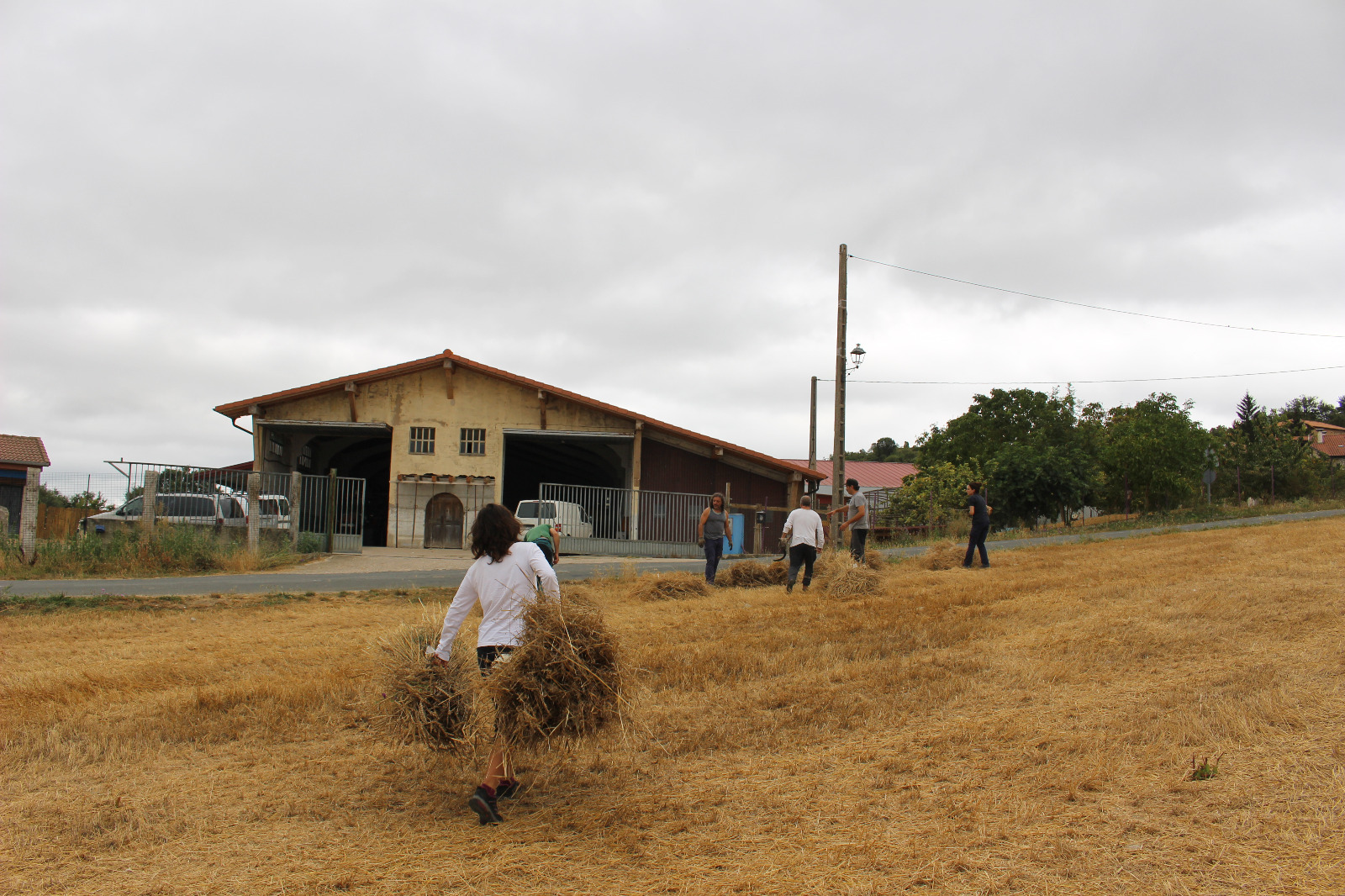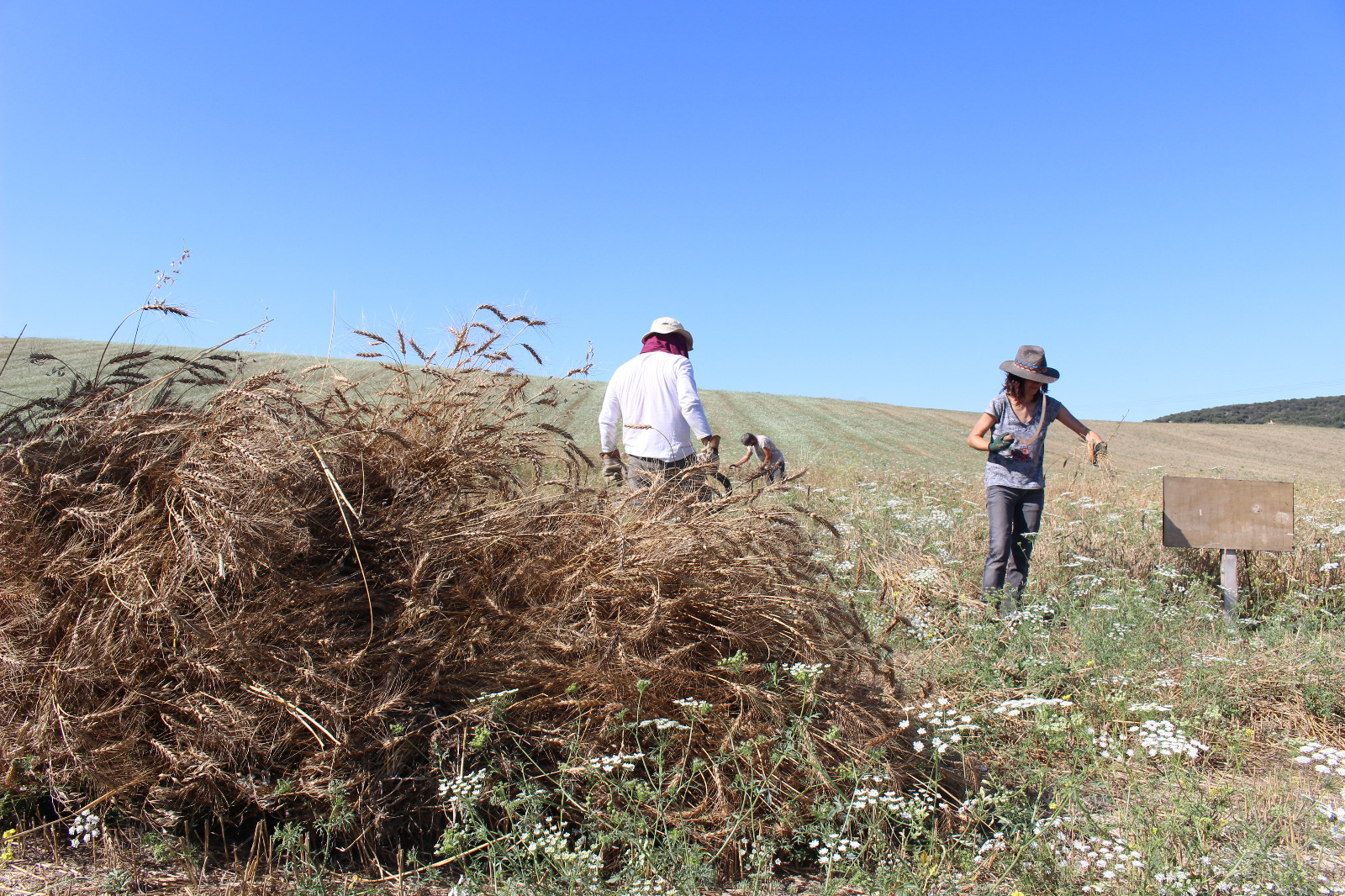
The wheat varieties currently used in conventional agriculture are commercial, modern. “In recent decades, cooperatives and peasant associations have continuously boosted commercial varieties, and indigenous seeds that no longer existed in the lands and farmhouses here,” said the project member. In addition to the seeds, knowledge and management of them have disappeared, but the project has been launched to deal with this loss. The project is being carried out in the areas of Agroekoop groups and partners.
“We’ve tried before. From the seed network, for example, about twenty years ago we started to recover native varieties, brought from Madrid.” In fact, most of the old varieties of the Basque Country were transferred to the official bank of Madrid in the 1980s, from where the alavesas are being recovered. “In recent years these seeds have been acquired from Neiker, from which we have obtained the varieties for this project,” explains Ibargurengoitia. At the moment, there are six old varieties that are recovering: the red motxo, the woolly motxo, the early Gasteiz, the early Bergara and the irreversible Zambrana.

Ibargurengoitia stressed the importance of recovering old seed varieties for biodiversity and resilience: “The greater the diversity cultivated, the more likely we will be to combat pests, diseases, climate change, etc.” The old varieties have aroused interest among Alavese producers and bakers for their attractive taste: “There’s interest, it’s a matter of how we organize, how we structure and channel production to be sustainable and profitable.”

The project promoters have organized two open days to publicize the project, which will take place on 8 June in Salcedo, one of the breeding plots. The second will take place on 20 August in Barria, on the other part of it. “We will also conduct a participatory study with farmers and technicians to recover old techniques and wisdom and share them with current knowledge. In short, agroecology is also that: combining old and current knowledge to gain in biodiversity and facilitate the work of the baserritars”.
Duela lau urte abiatu zuten Azpeitian Enkarguk proiektua, Udalaren, Urkome Landa Garapen Elkartearen eta Azpeitiako eta Gipuzkoako merkatari txikien elkarteen artean. “Orain proiektua bigarren fasera eraman dugu, eta Azkoitian sortu dugu antzeko egitasmoa, bere izenarekin:... [+]
Donostiako Amara auzoko Izko ileapaindegi ekologikoak 40 urte bete berri ditu. Familia-enpresa txikia da, eta hasieratik izan zuten sortzaileek ile-apainketan erabiltzen ziren produktuekiko kezka. “Erabiltzaileen azalarentzat oso bortzitzak dira produktu gehienak, baina... [+]
Ubidekoak (Bizkaia) dira Imanol Iturriotz eta Aritz Bengoa gazteak. “Lagunak gara txikitatik, eta beti izan dugu buruan abeltzaintza proiektu bat martxan jartzeko ideia”, azaldu du Iturriotzek. Nekazaritzari lotutako ikasketak izan ez arren, baserri munduarekin eta... [+]
Iruñean bizi ziren Iñaki Zoko Lamarka eta Andoni Arizkuren Eseberri gazteak, baina familiaren herriarekin, Otsagabiarekin, lotura estua zuten biek betidanik. “Lehen, asteburuetan eta udan etortzen ginen eta duela urte batzuk bizitzera etorri ginen”, dio... [+]
Gipuzkoako hamaika txokotatik gerturatutako hamarka lagun elkartu ziren otsailaren 23an Amillubiko lehen auzo(p)lanera. Biolur elkarteak bultzatutako proiektu kolektiboa da Amillubi, agroekologian sakontzeko eta Gipuzkoako etorkizuneko elikadura erronkei heltzeko asmoz Zestoako... [+]
Emakume bakoitzaren errelatotik abiatuta, lurrari eta elikadurari buruzko jakituria kolektibizatu eta sukaldeko iruditegia irauli nahi ditu Ziminttere proiektuak, mahai baten bueltan, sukaldean bertan eta elikagaiak eskutan darabiltzaten bitartean.